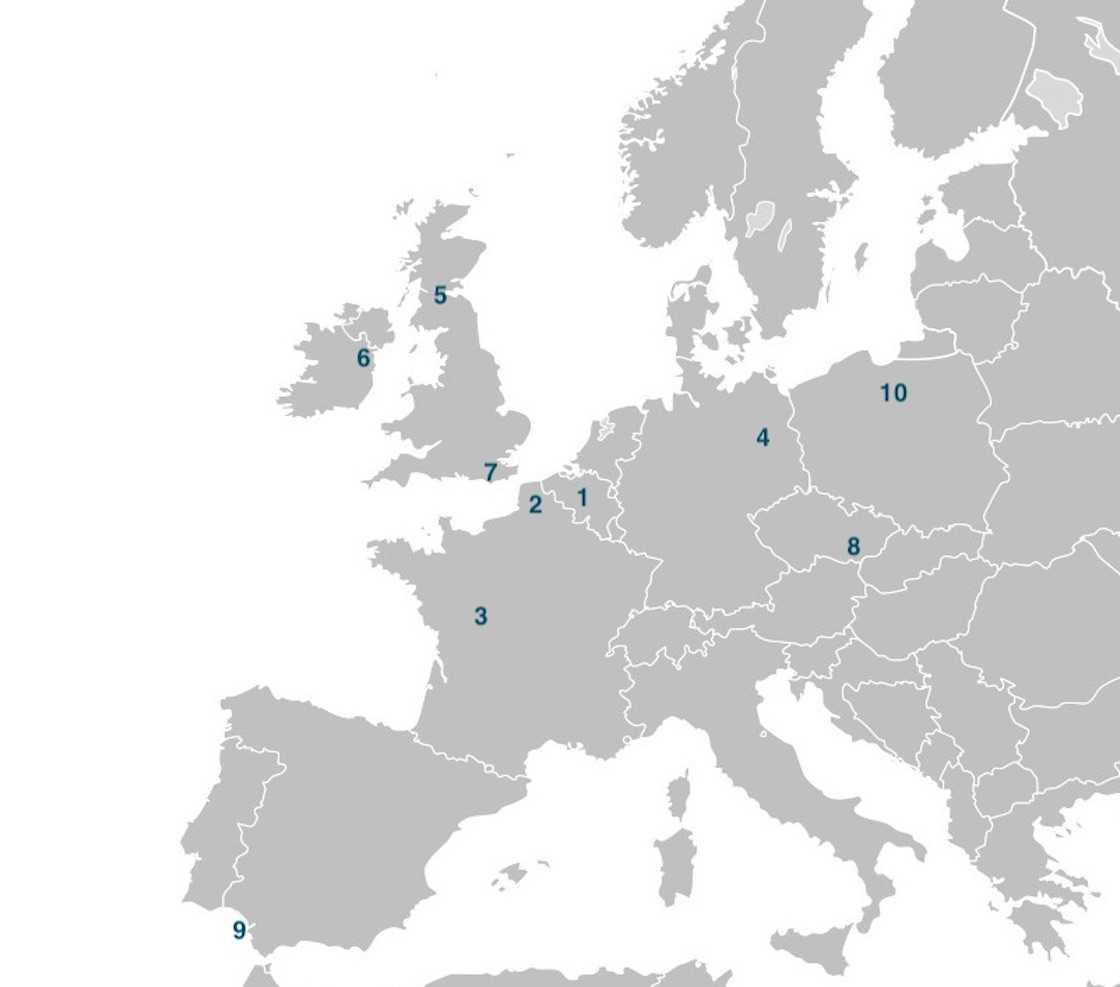
Europe's Historic Clashes Trivia Quiz
Find 10 Battles on a Map
You might have heard of all these battles, but can you find the corresponding battlefields on a map?
A label quiz
by wellenbrecher.
Estimated time: 3 mins.


| 1. |
| 2. |
| 3. |
| 4. |
| 5. |
| 6. |
| 7. |
| 8. |
| 9. |
| 10. |